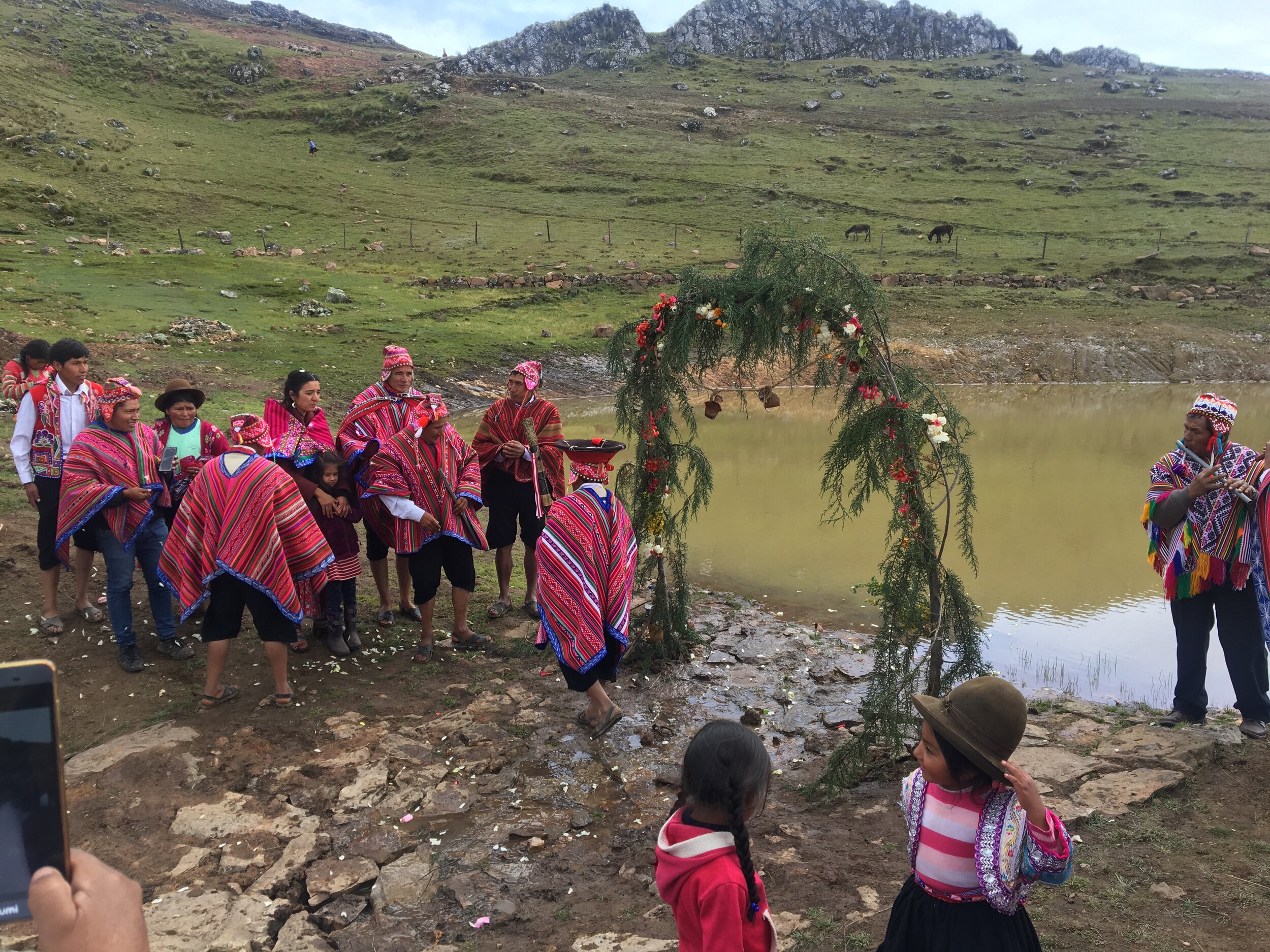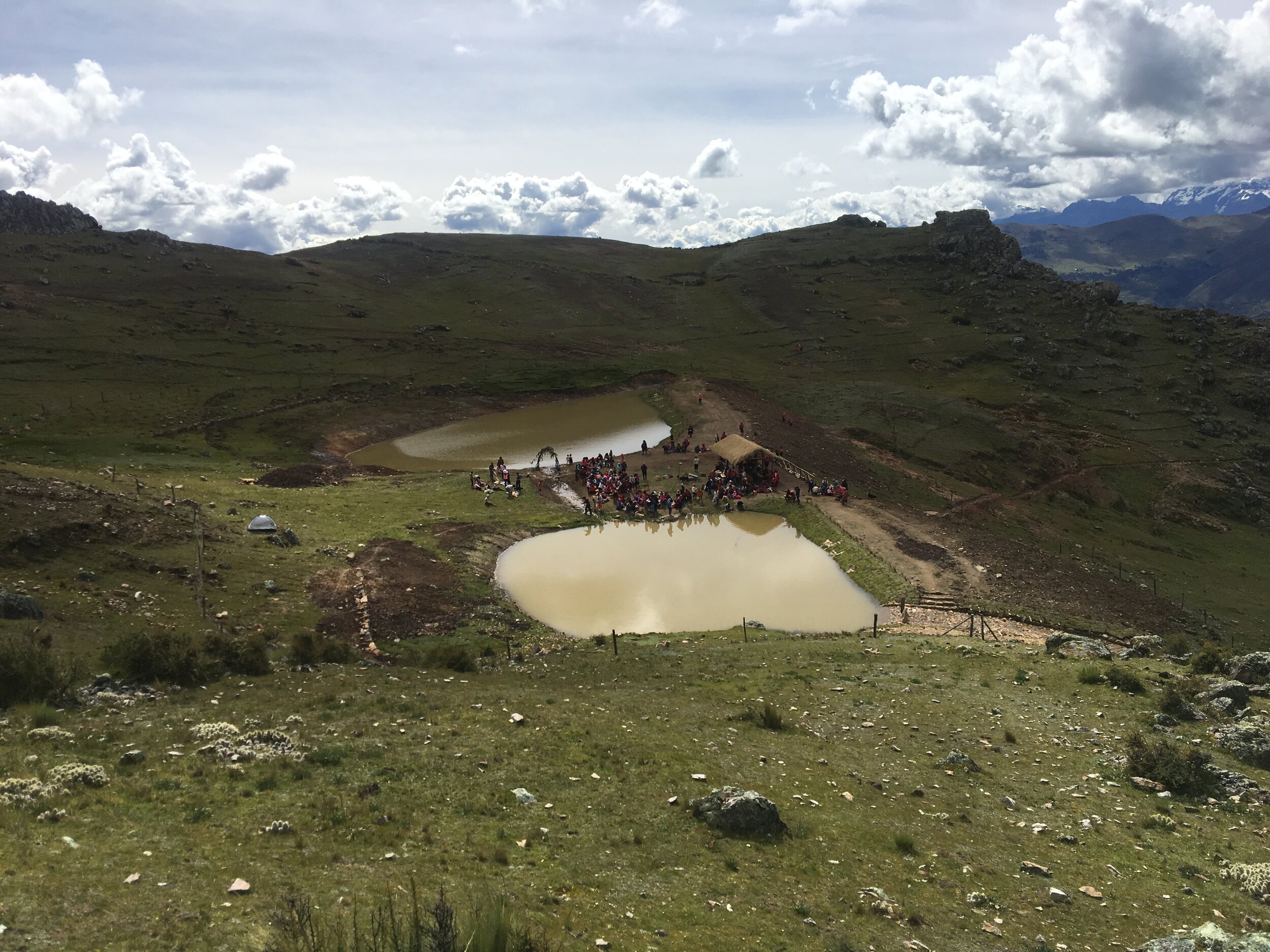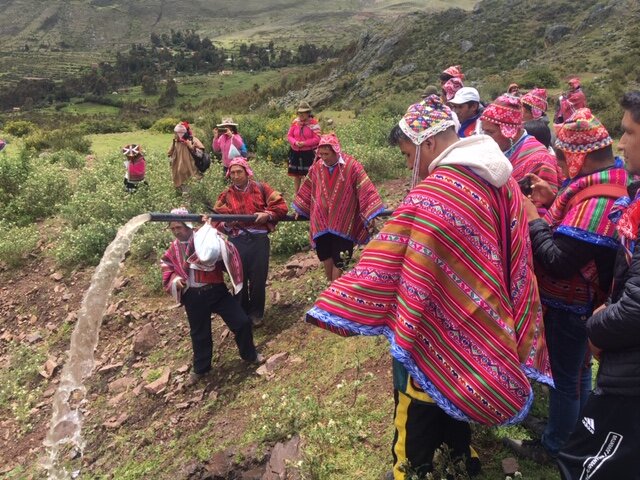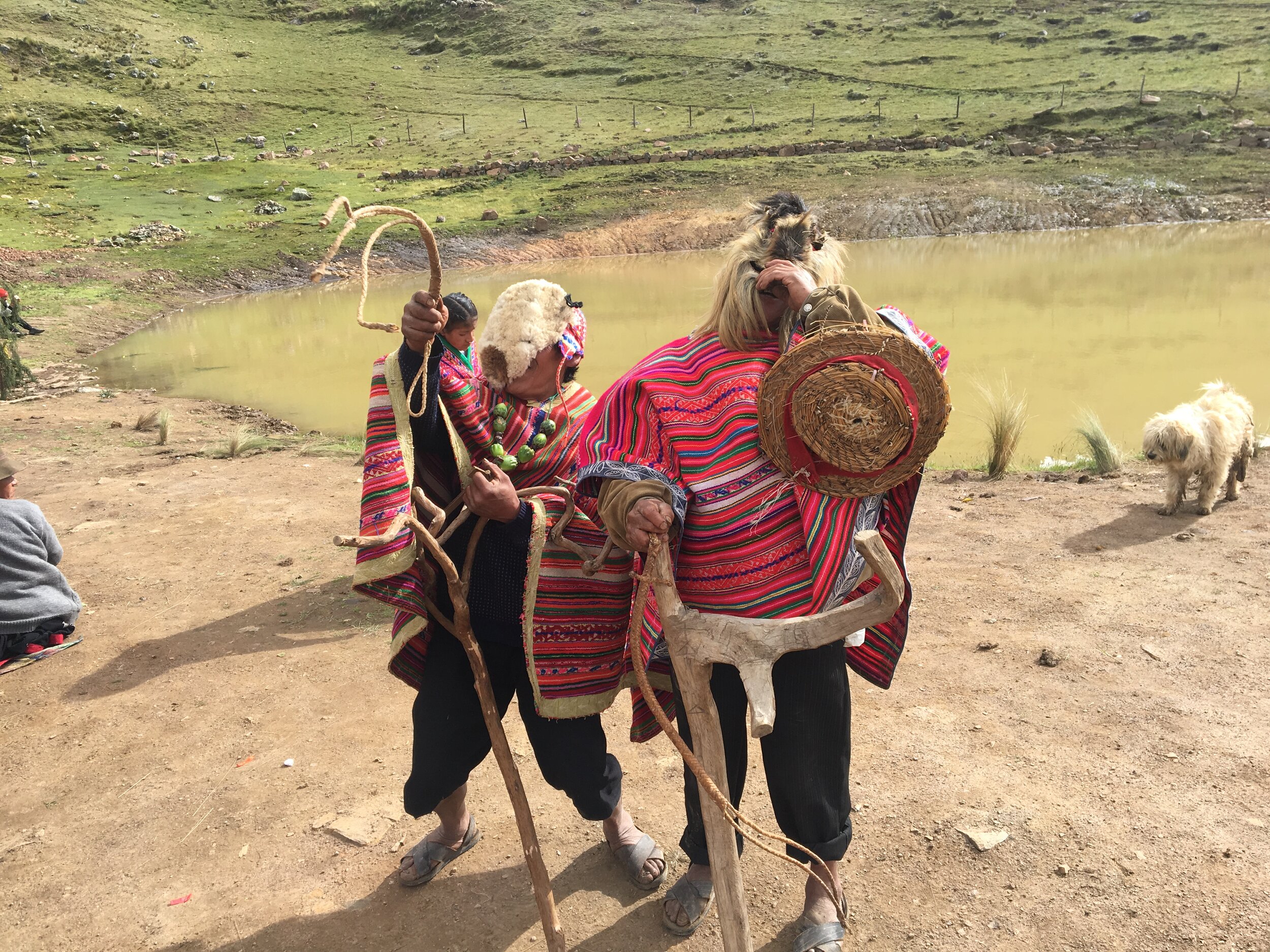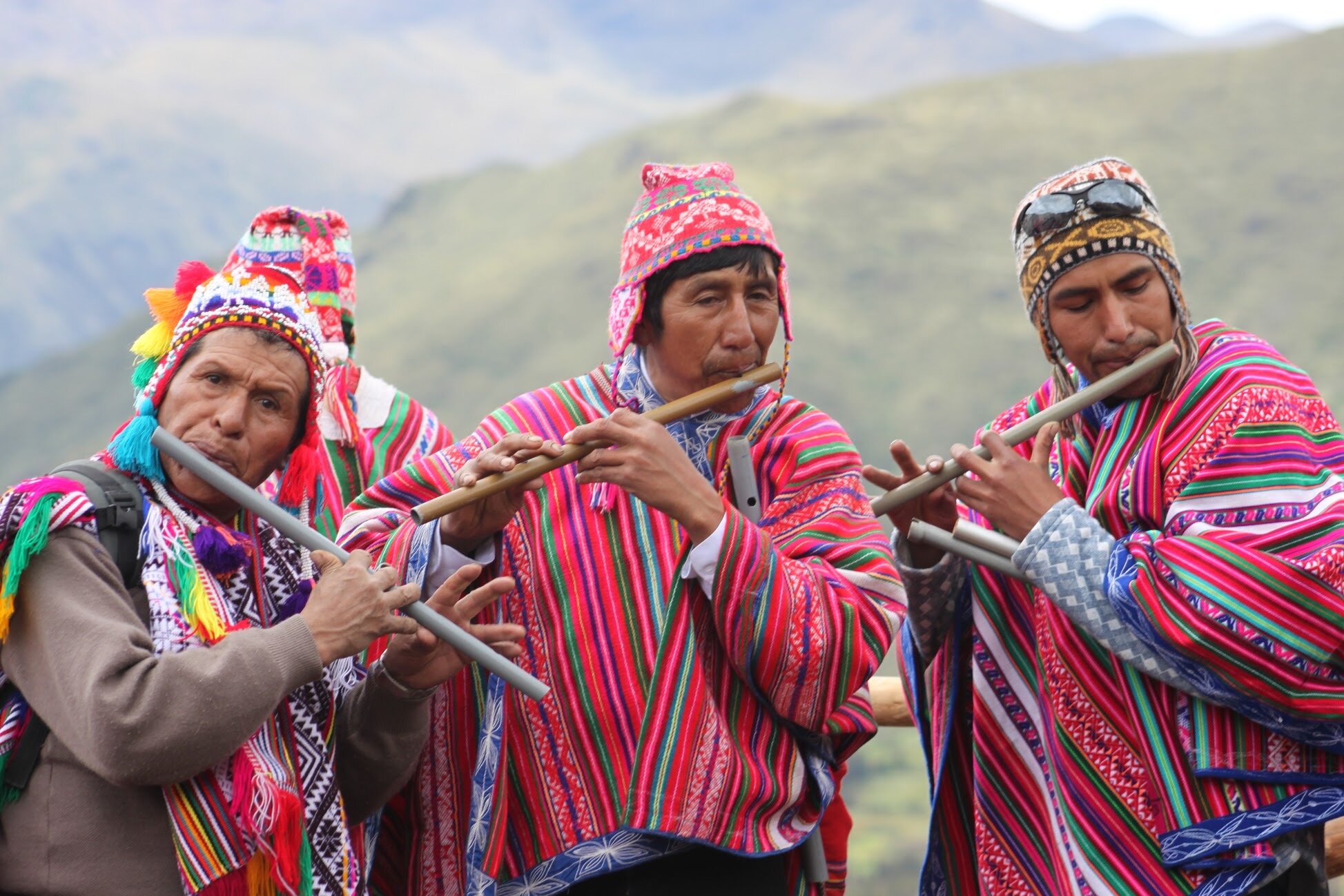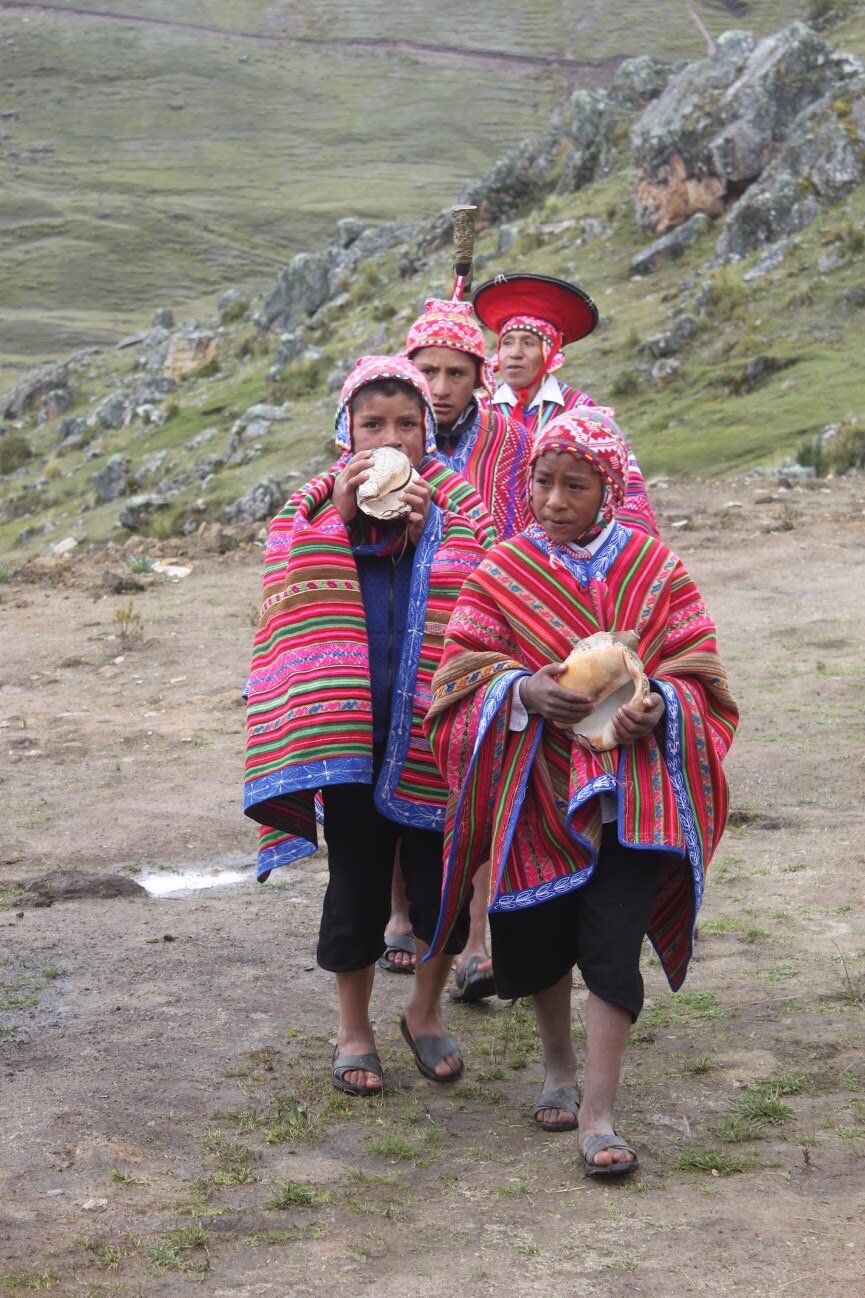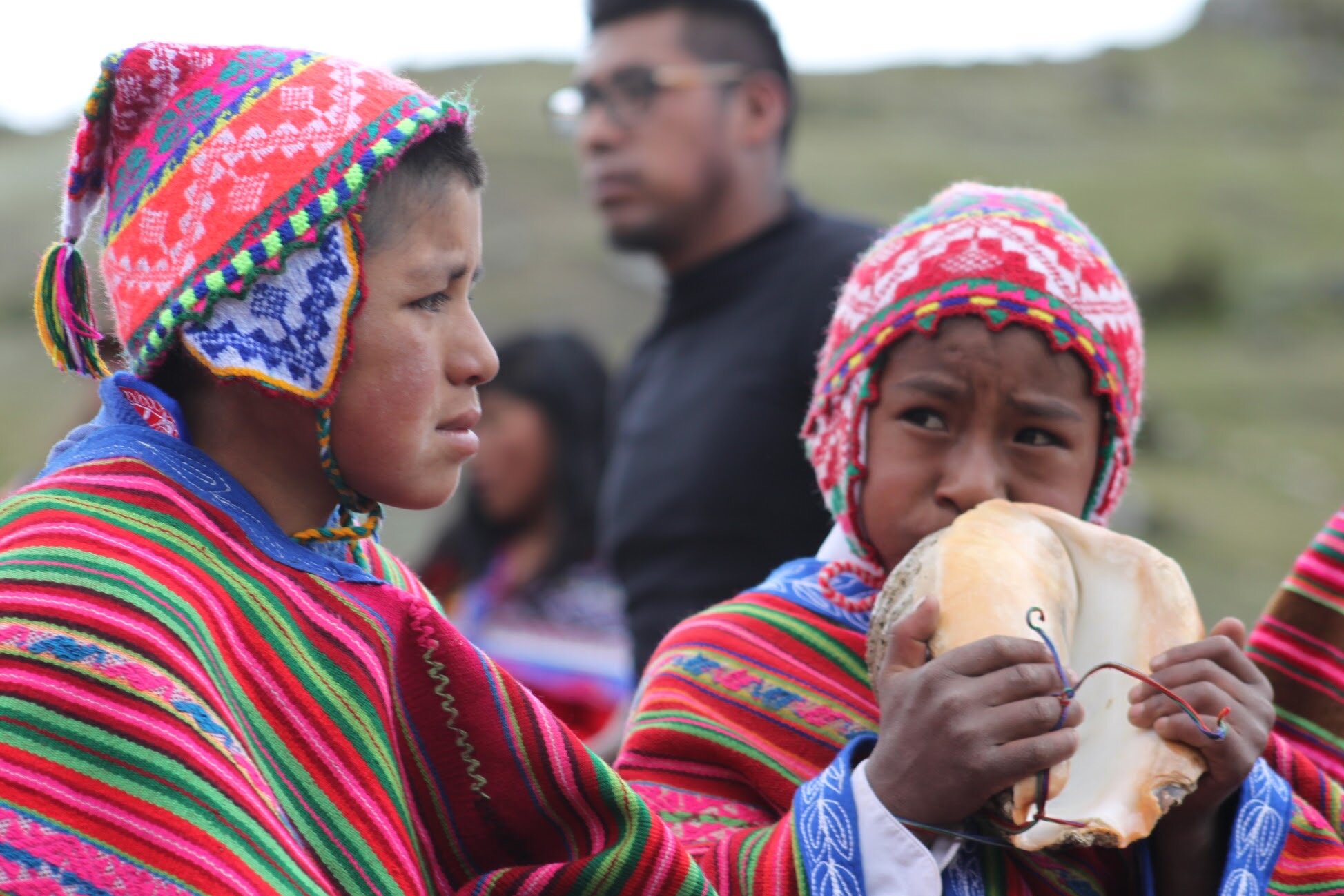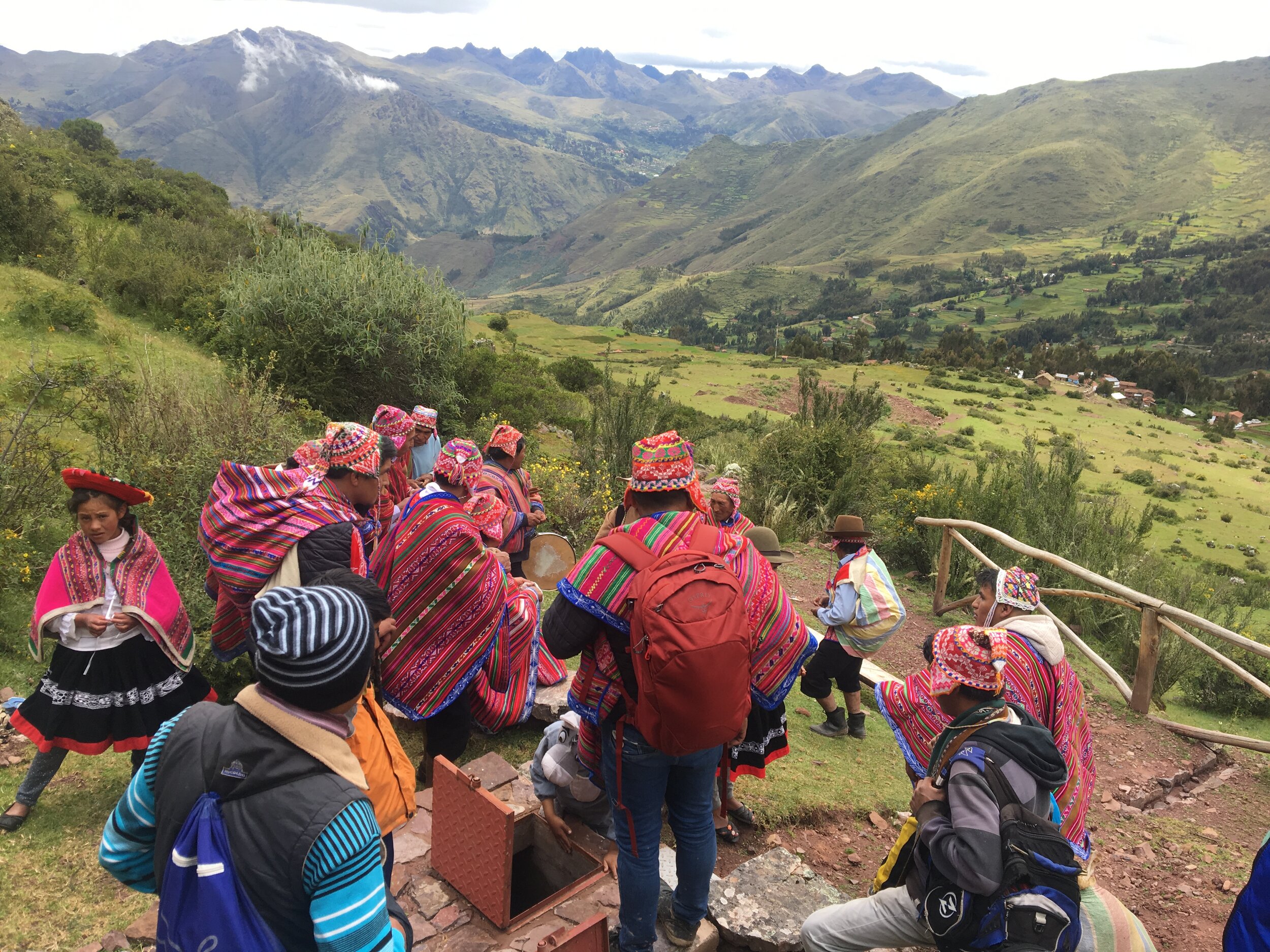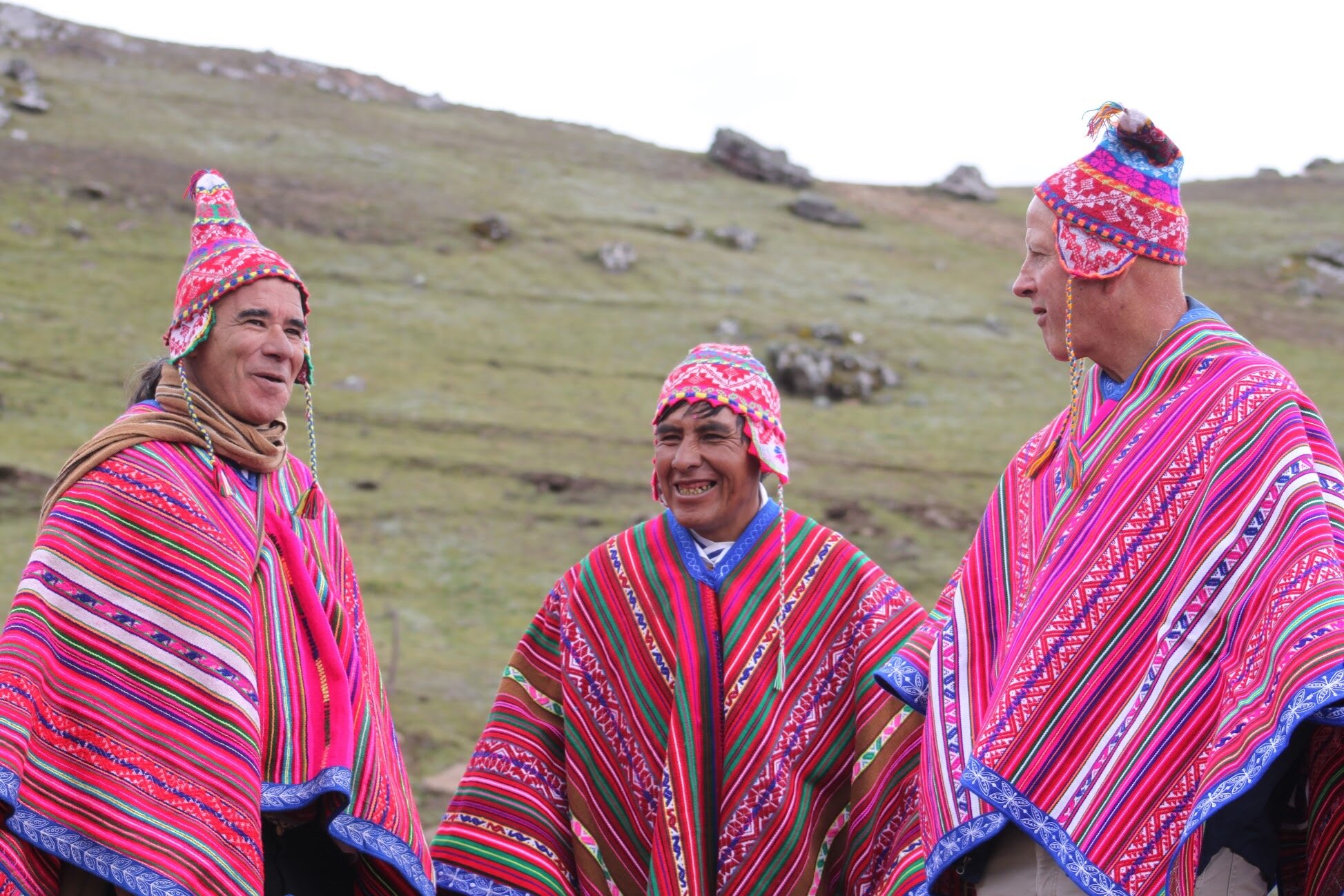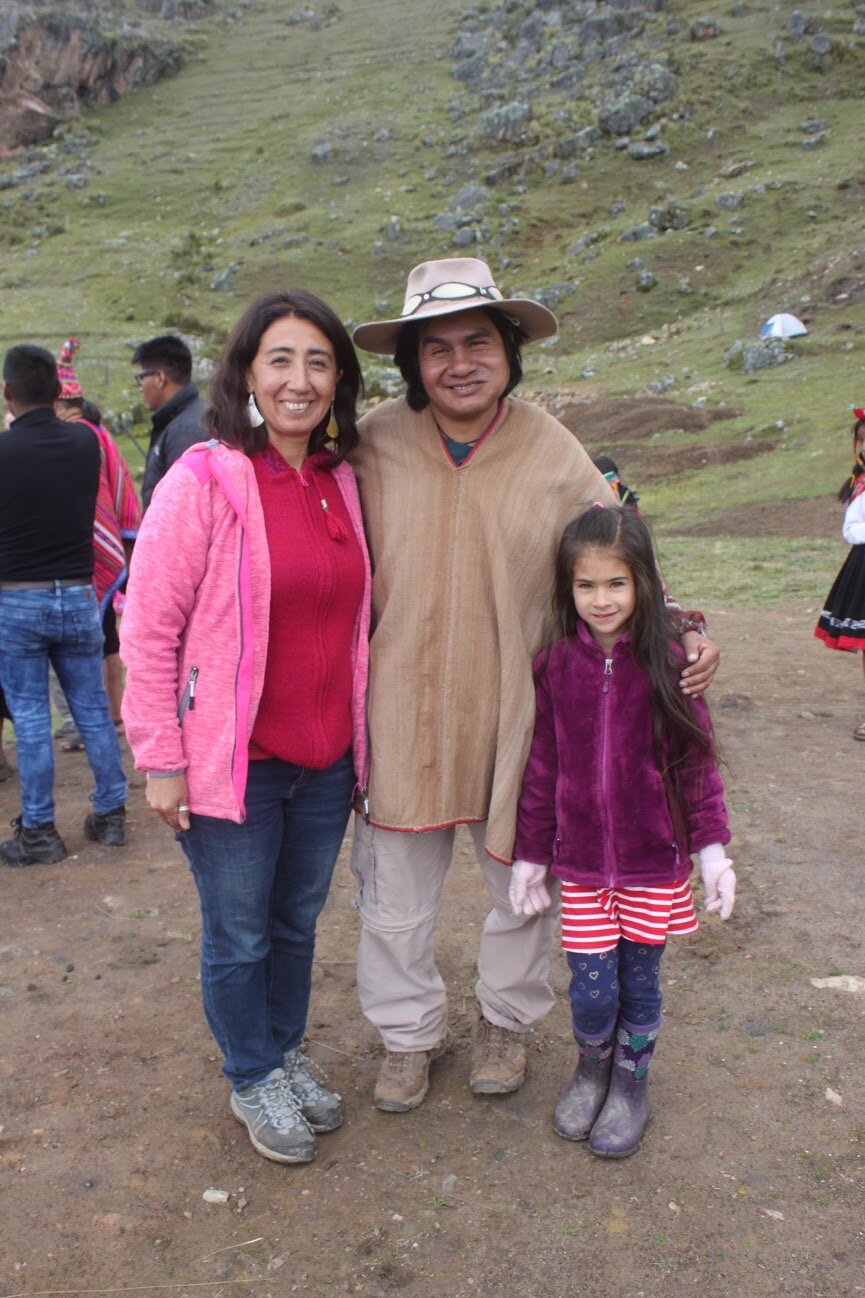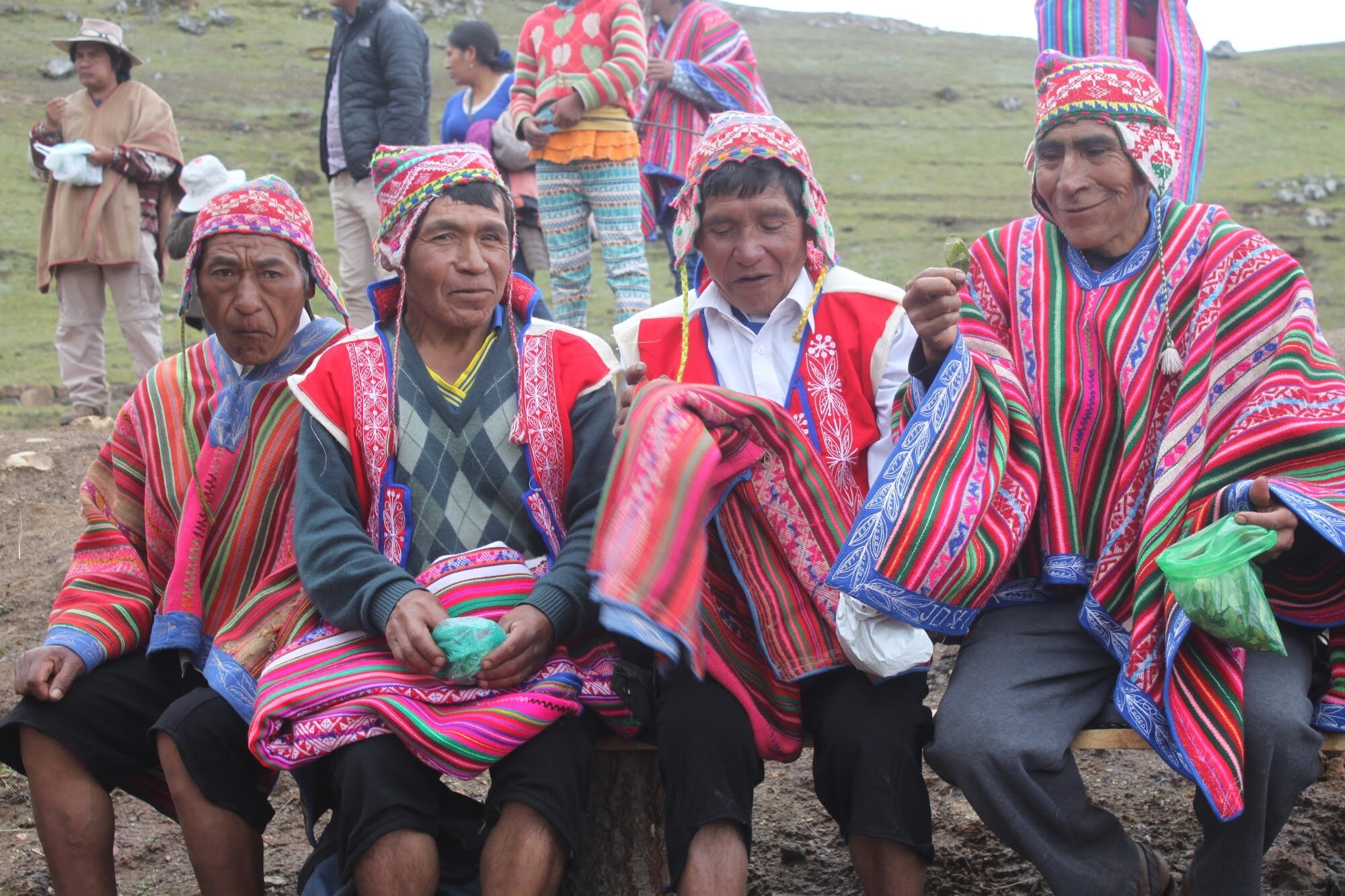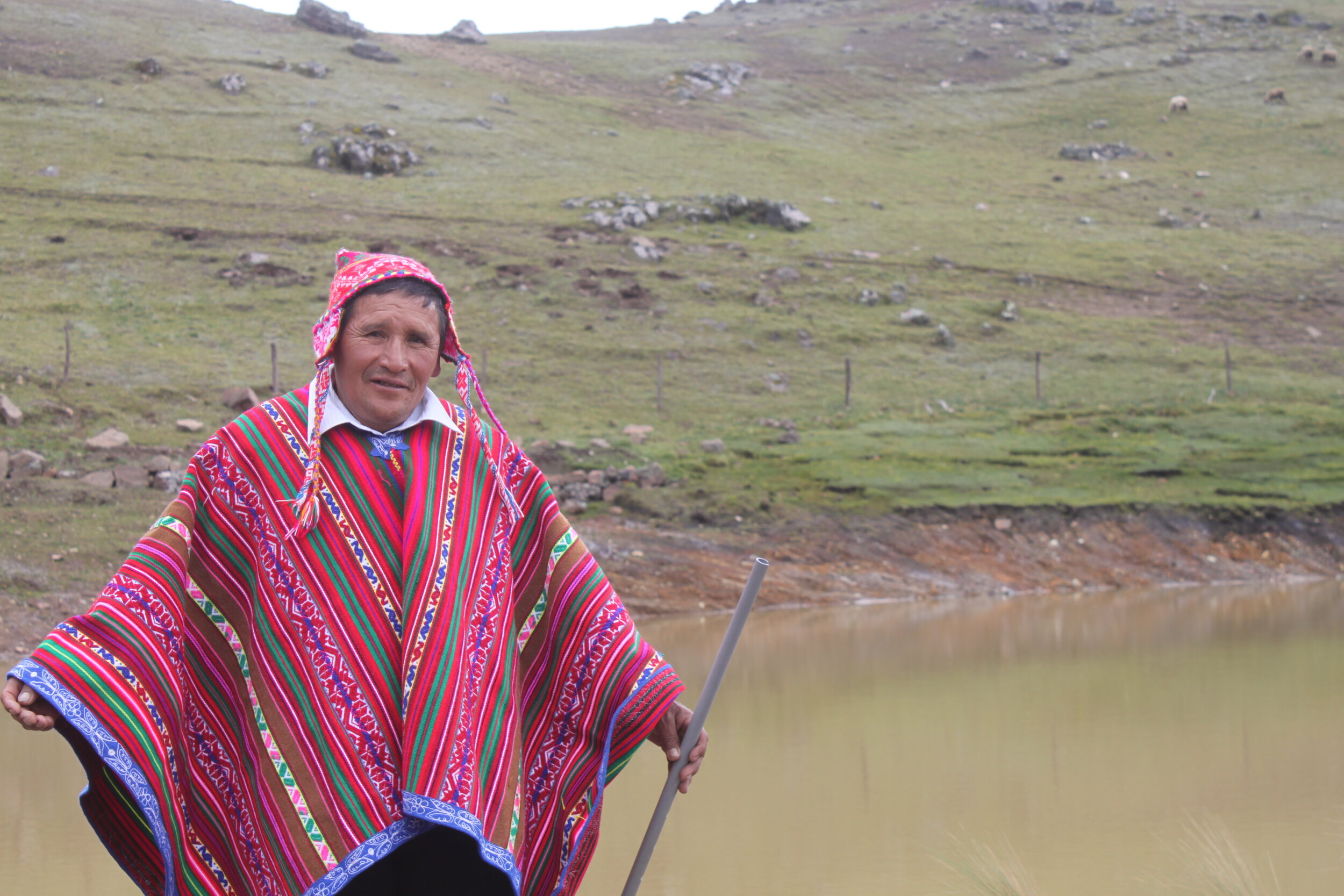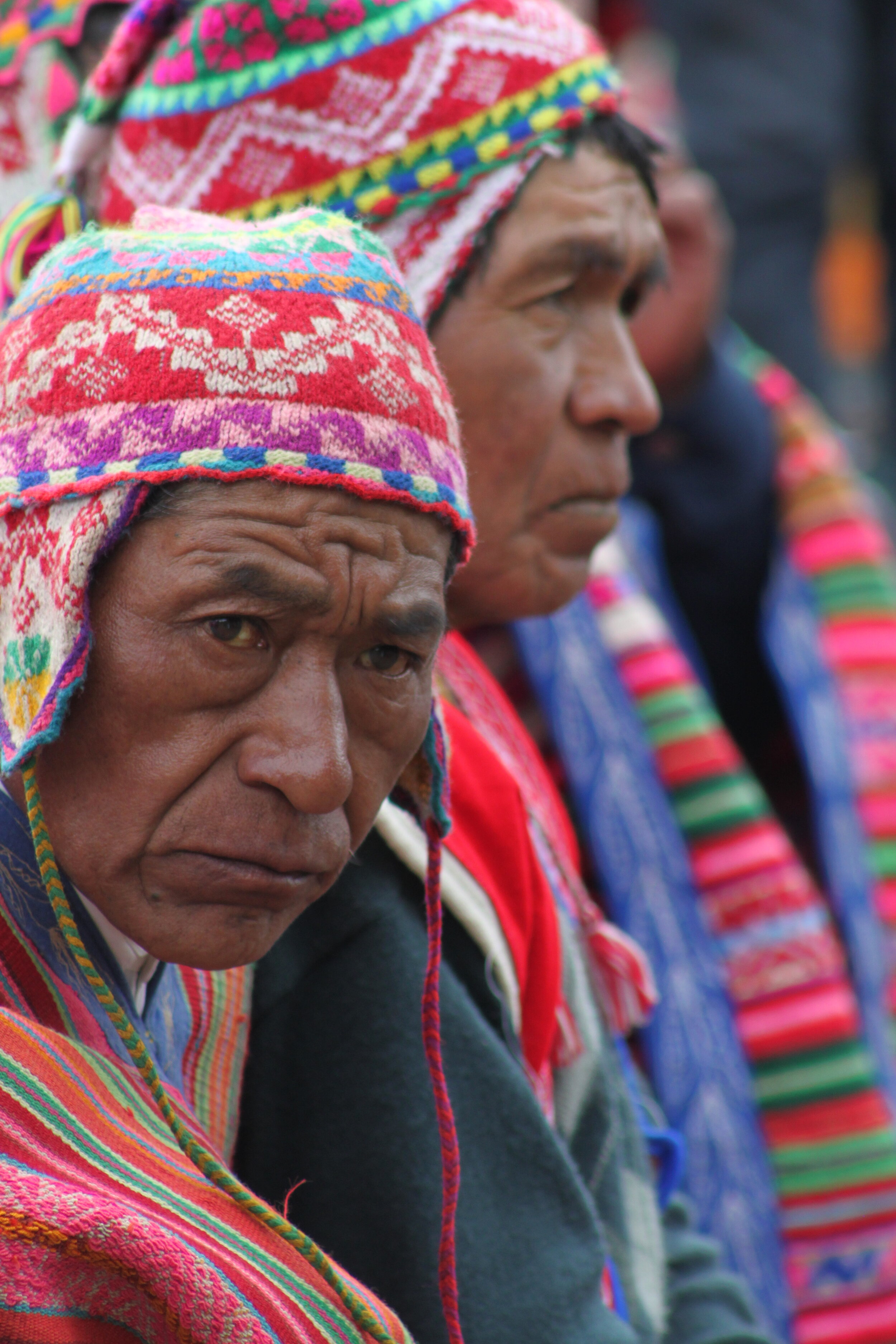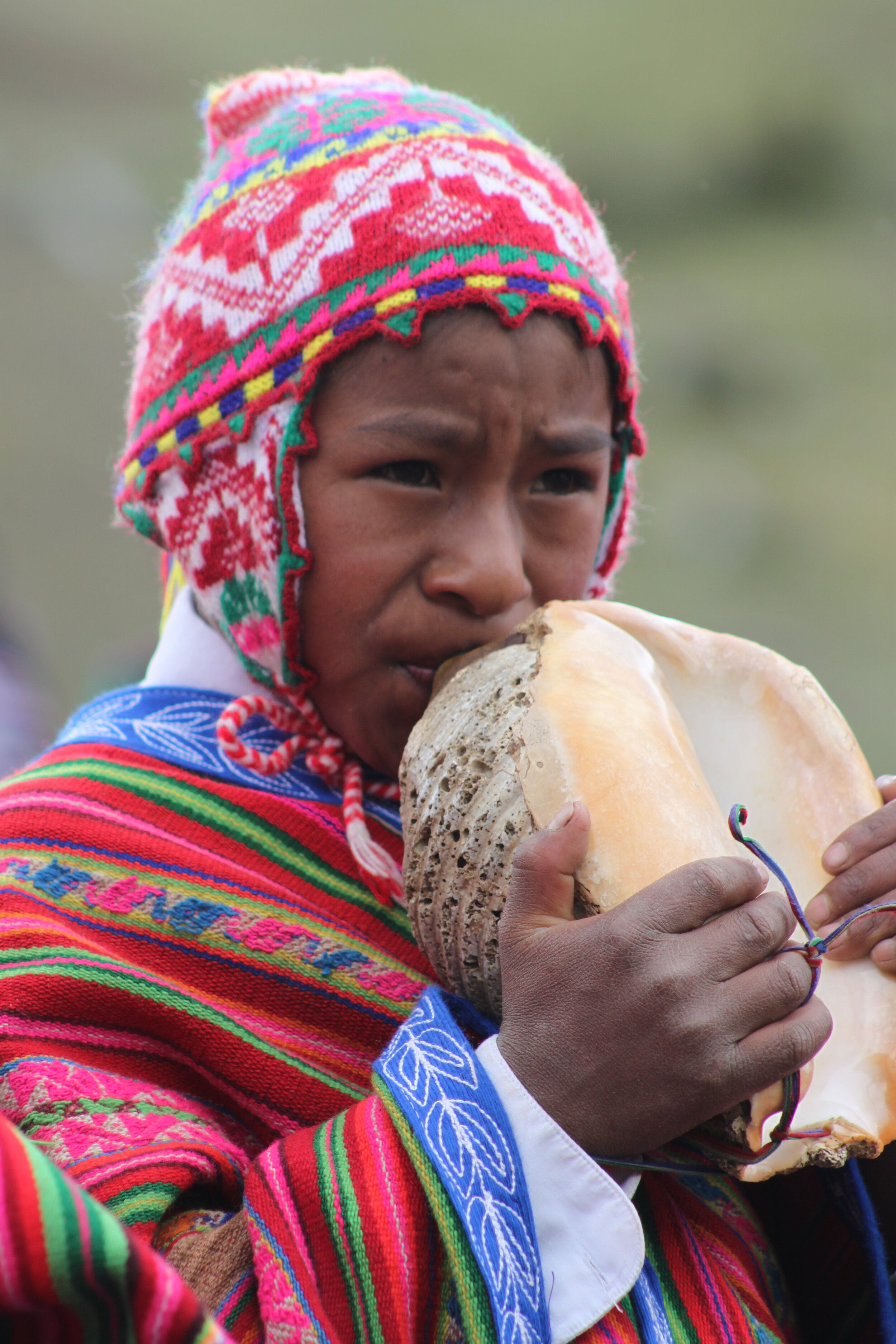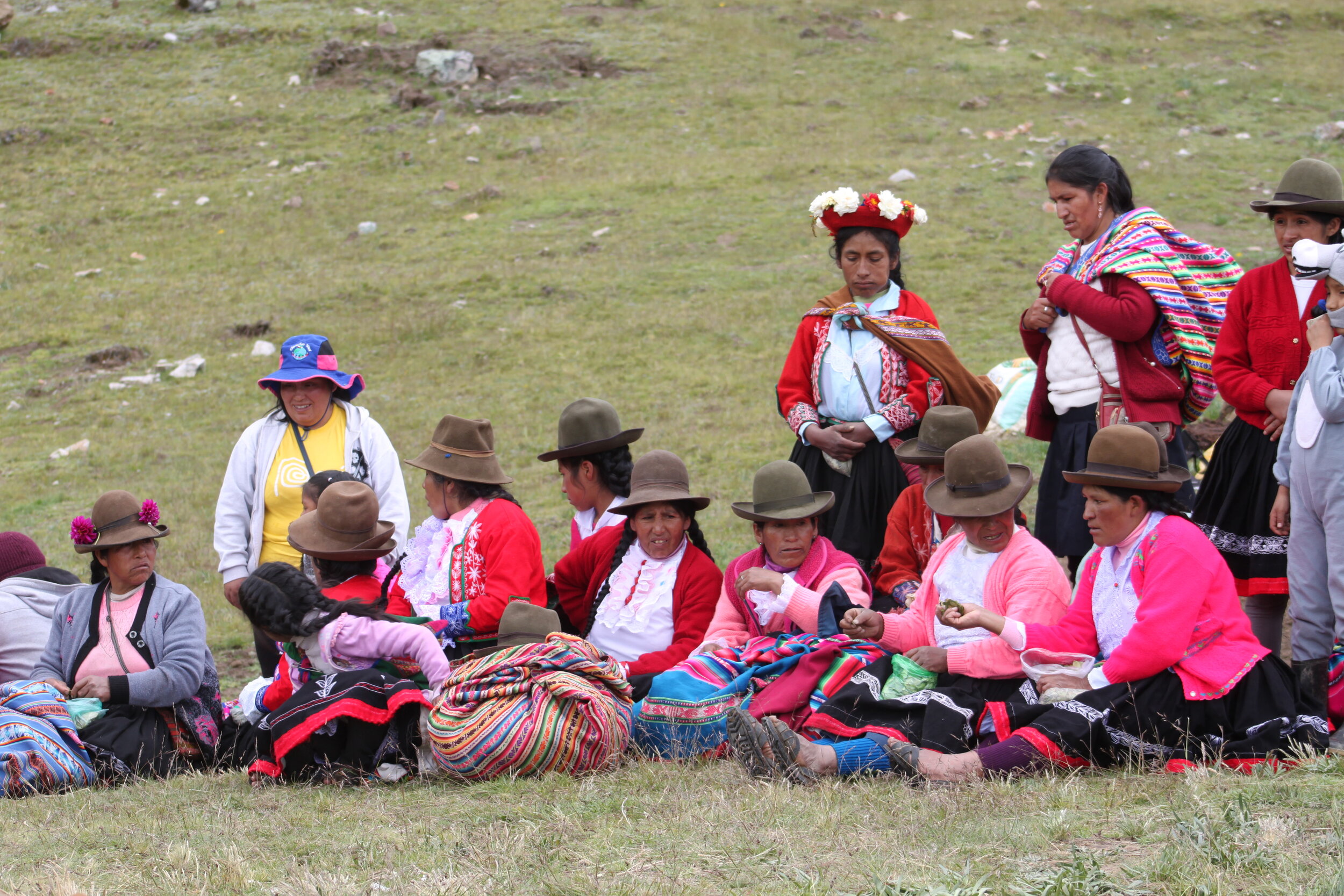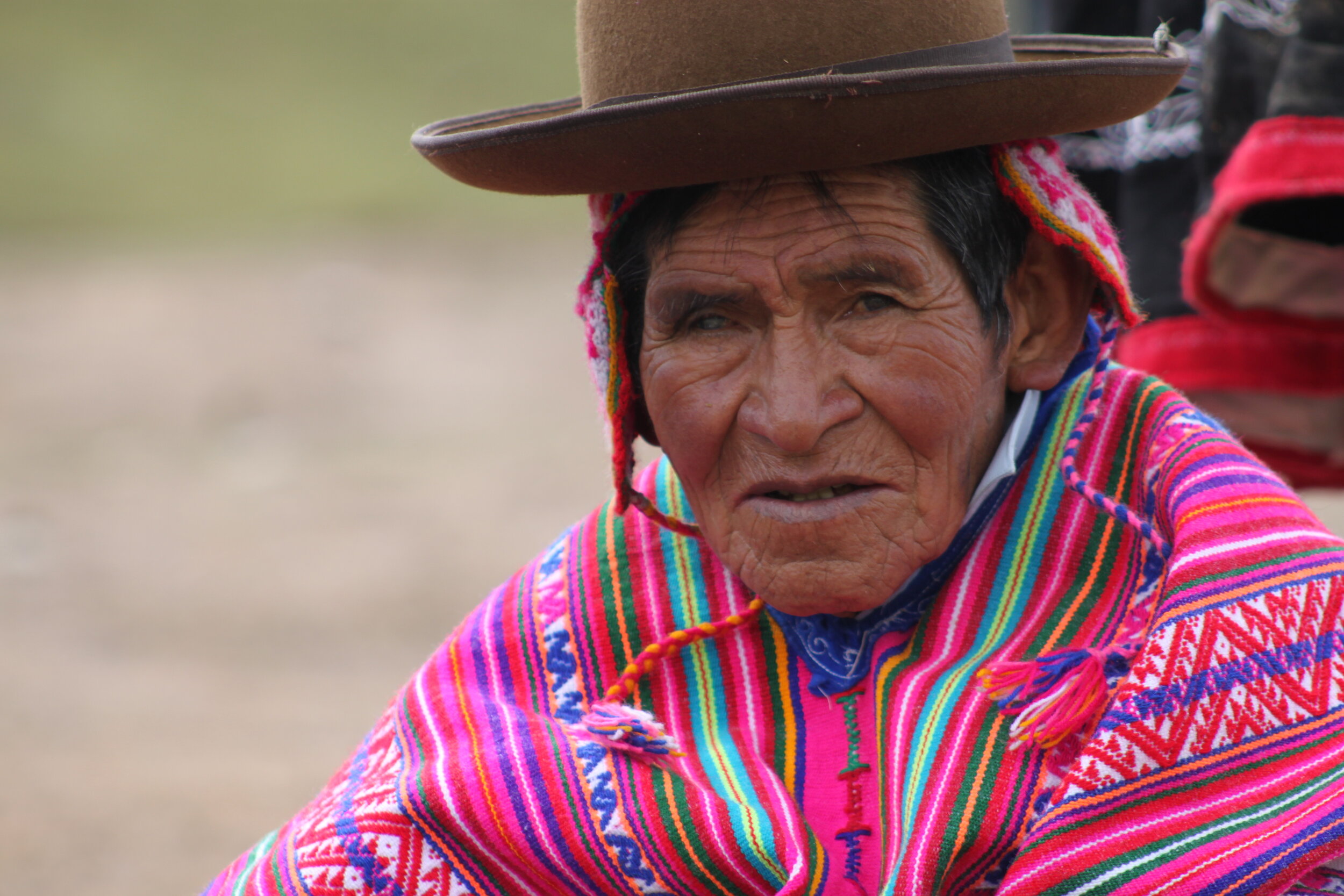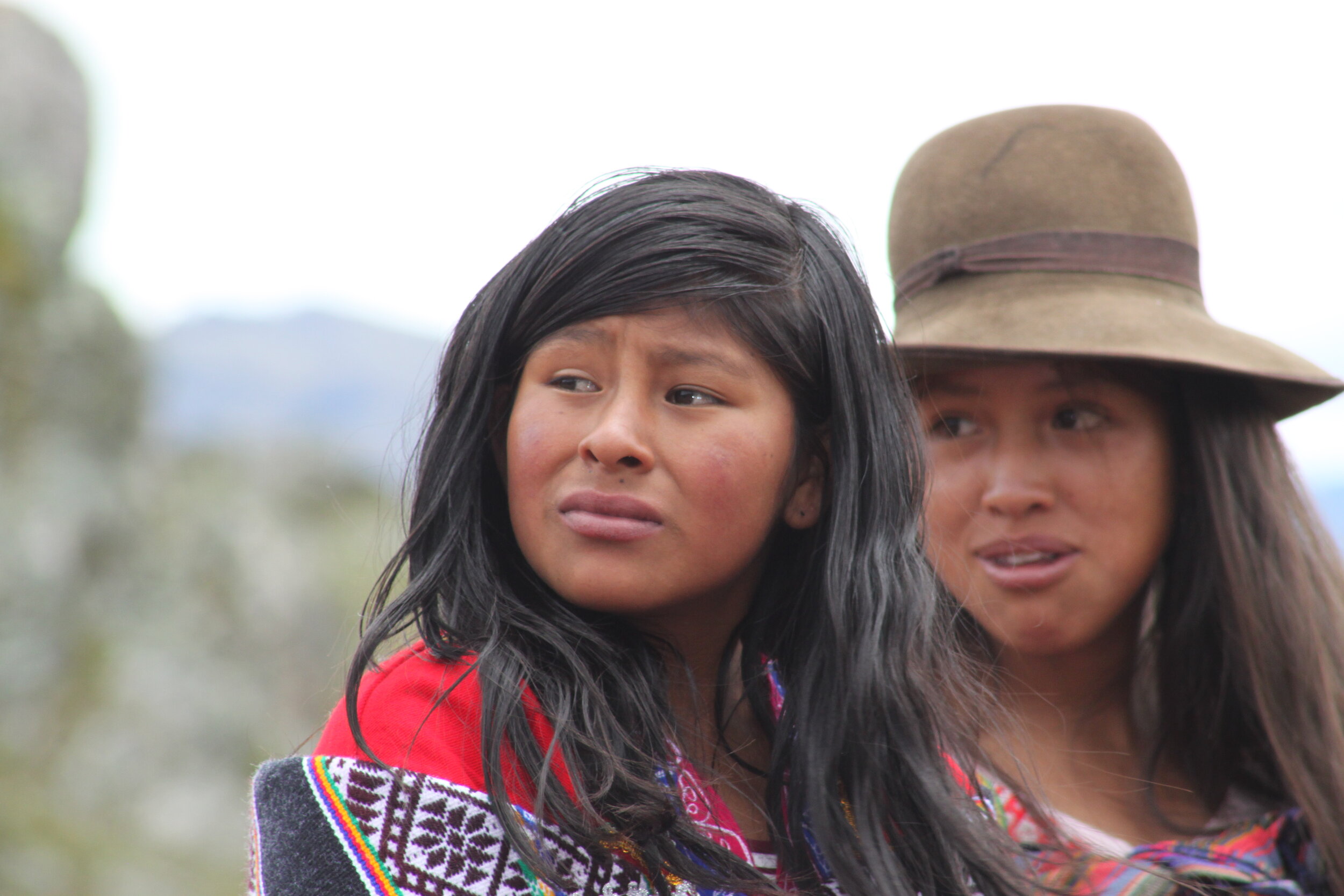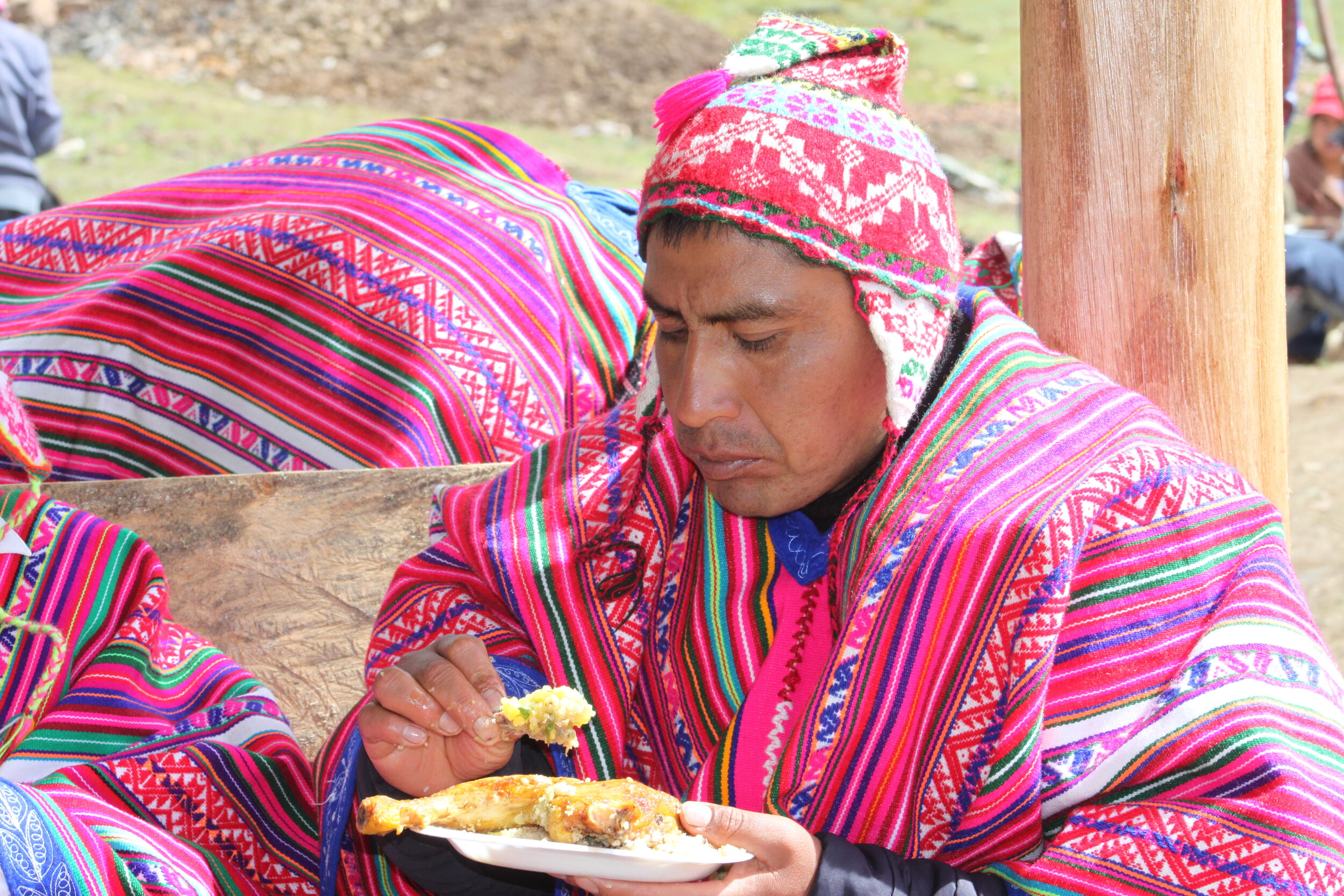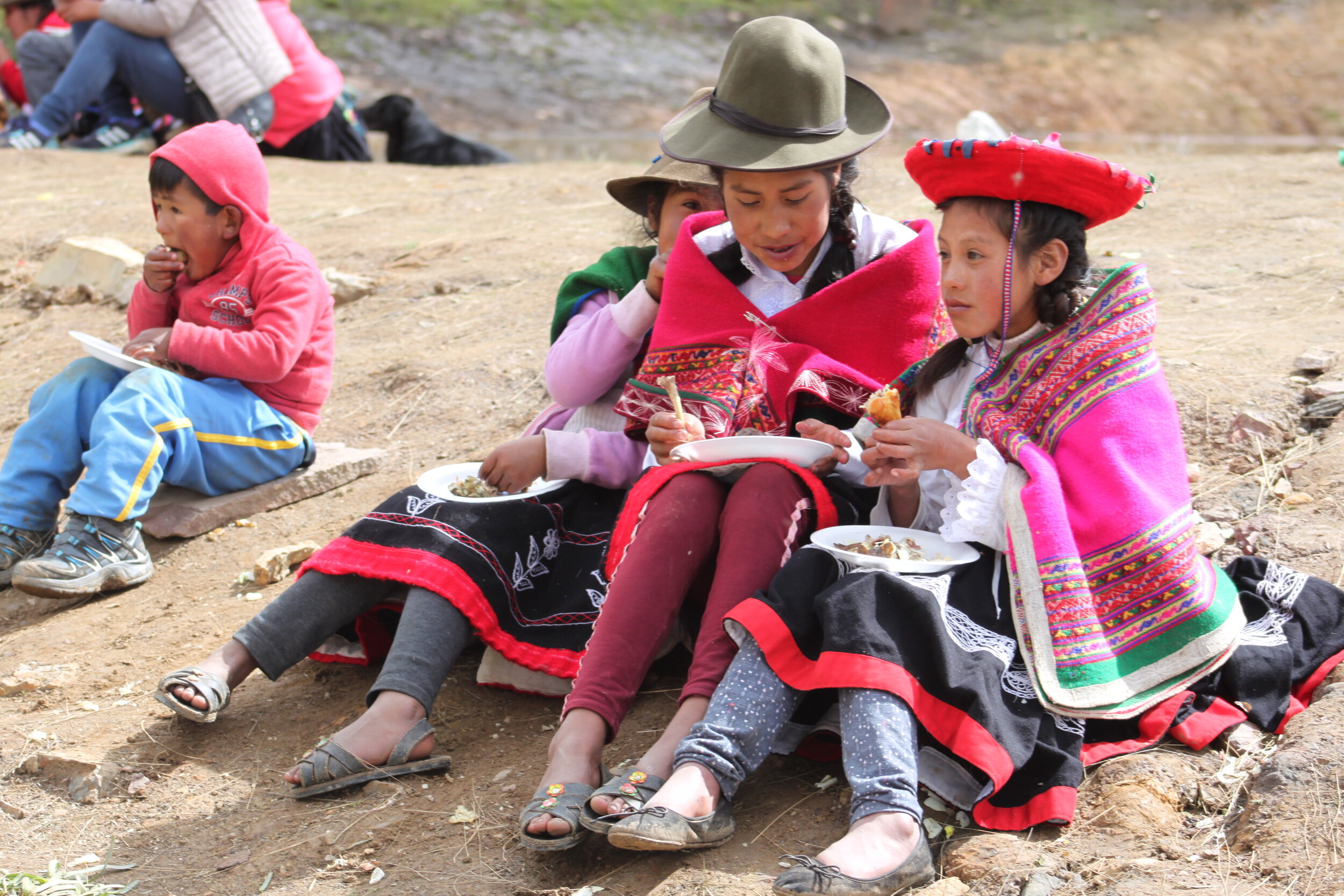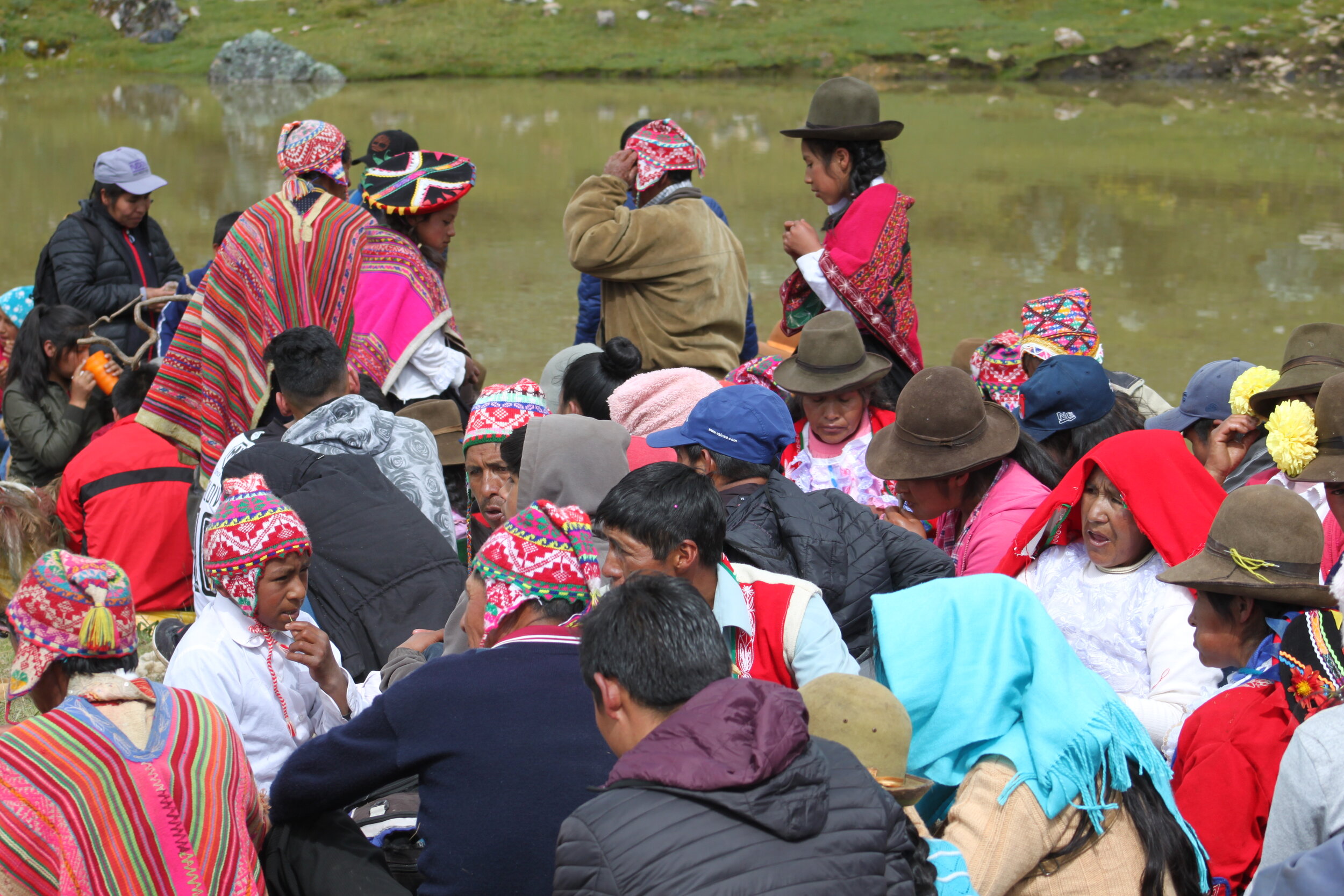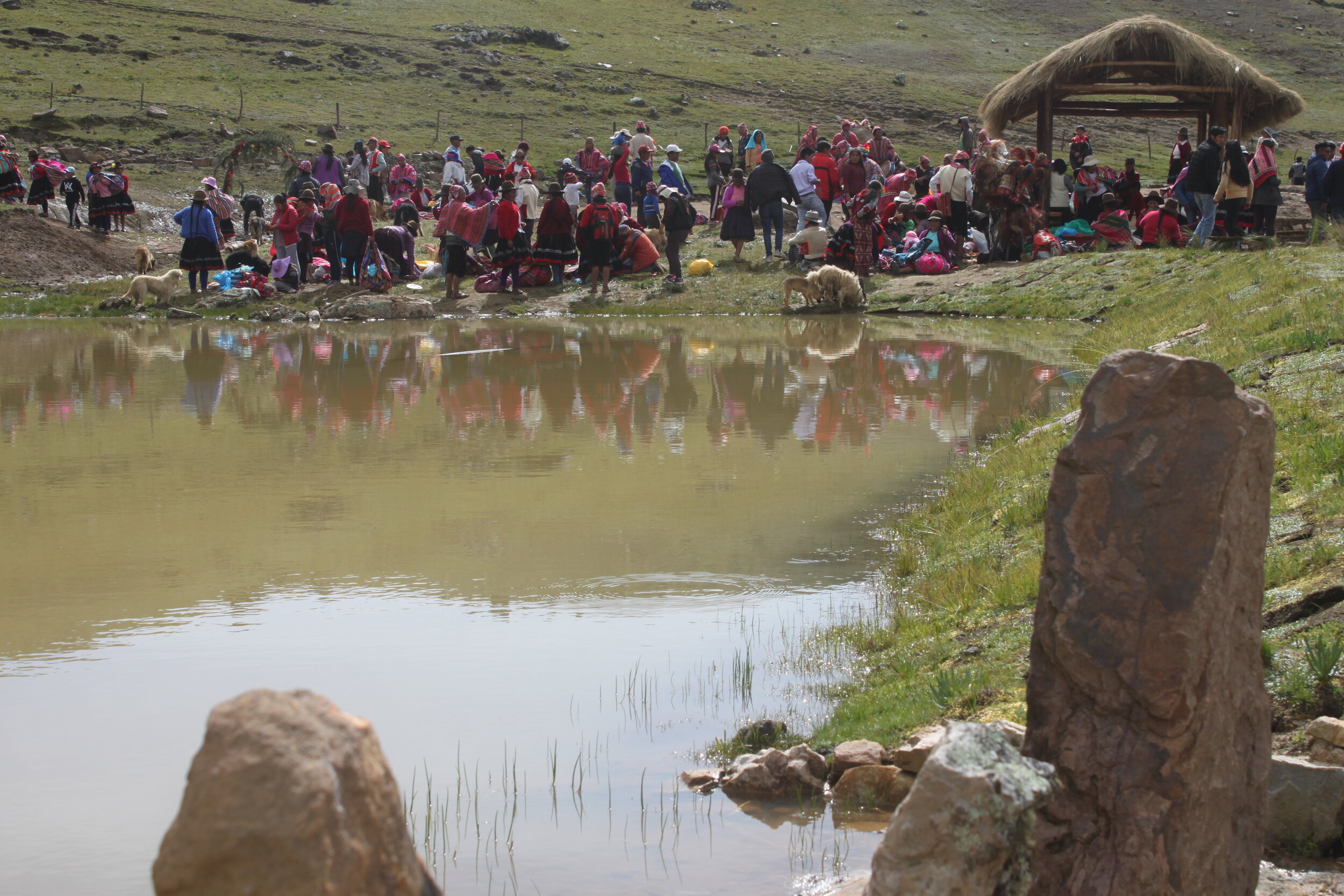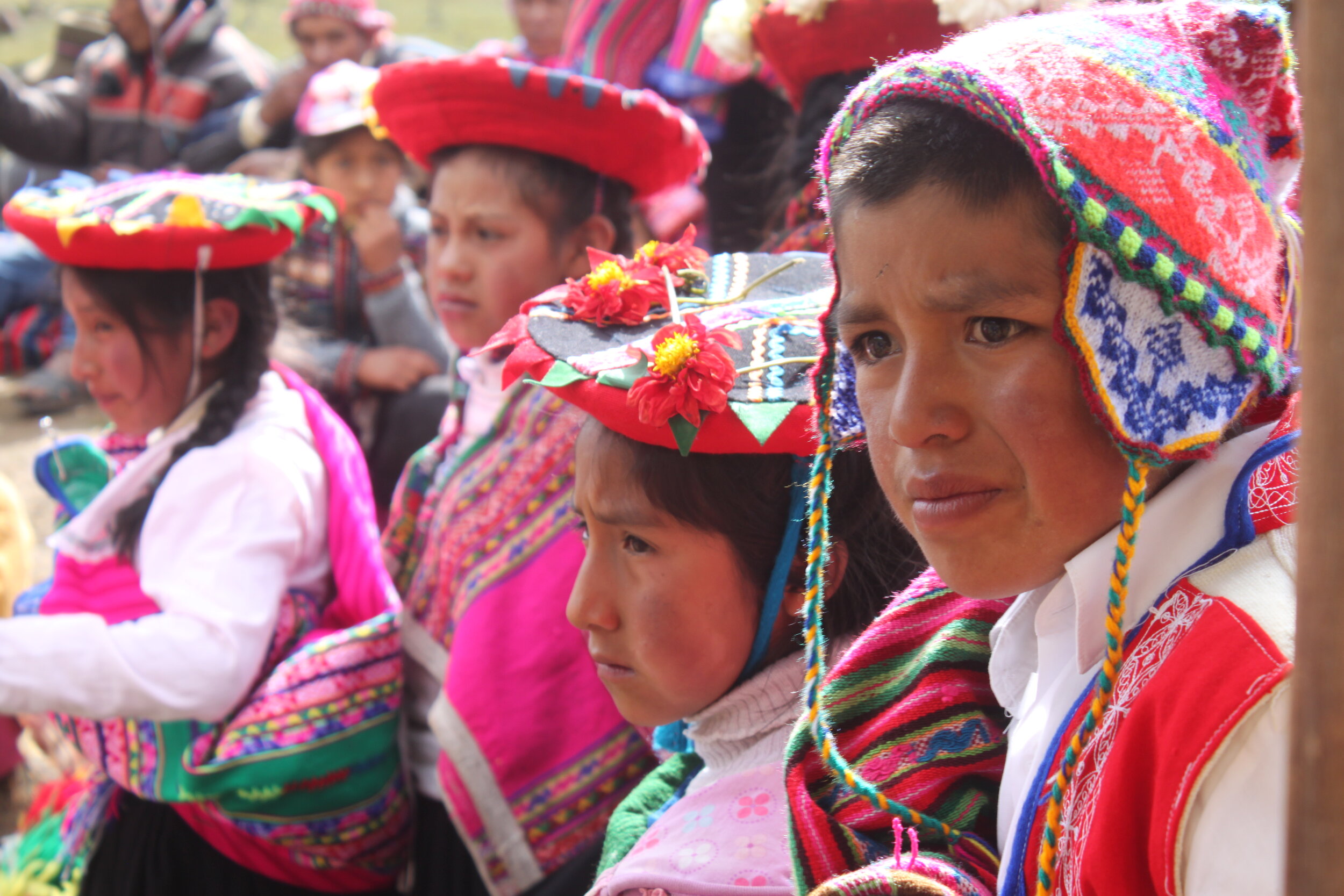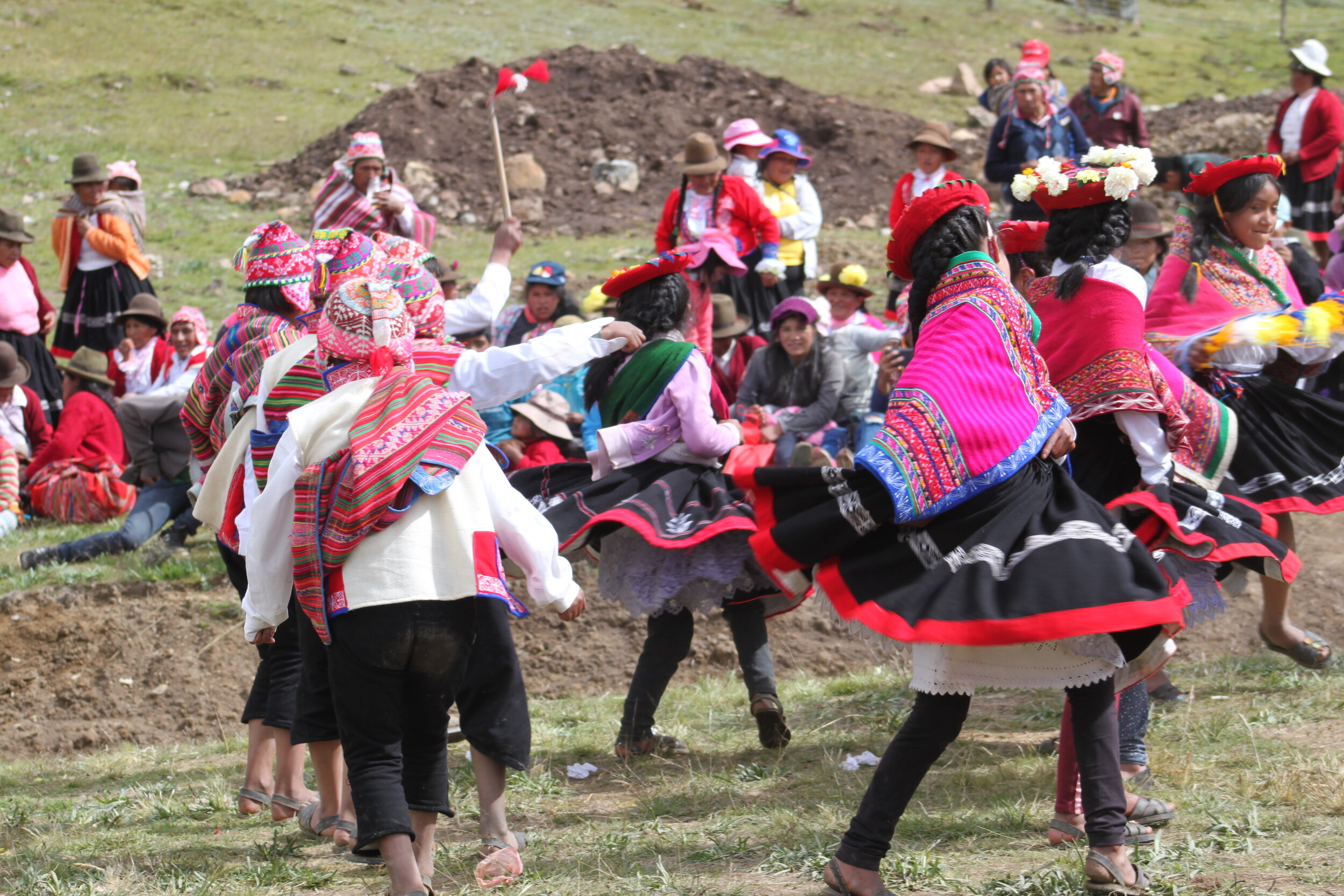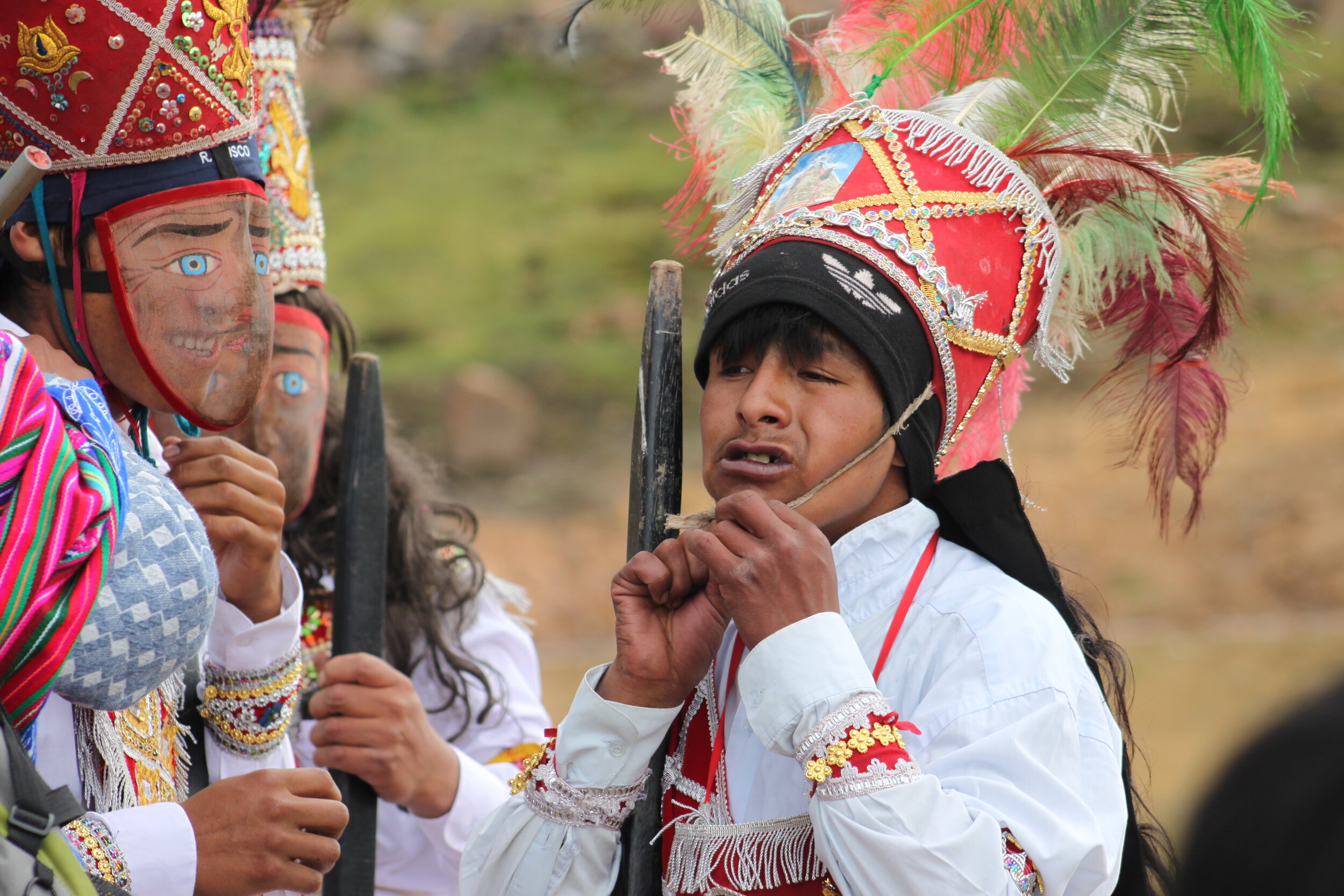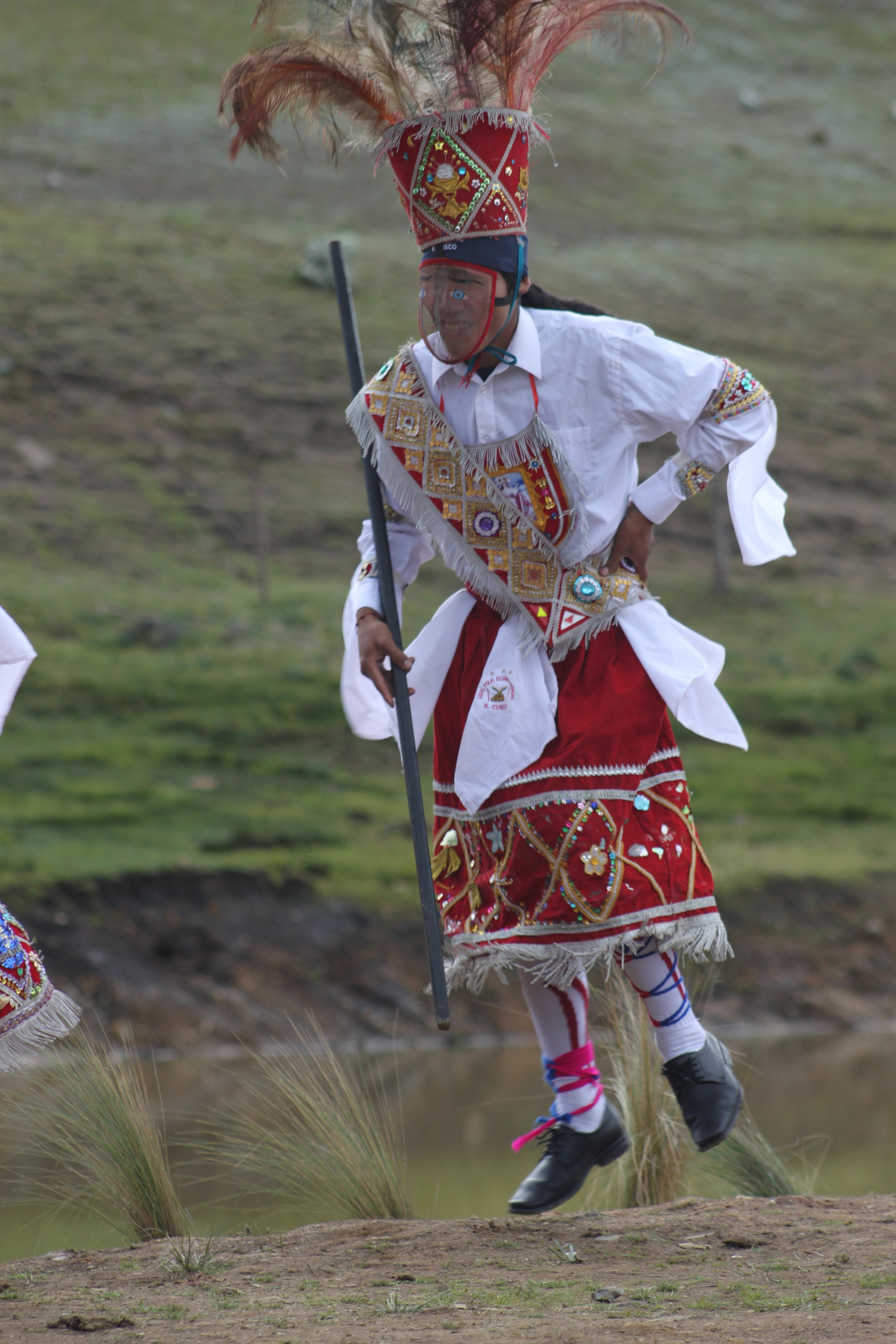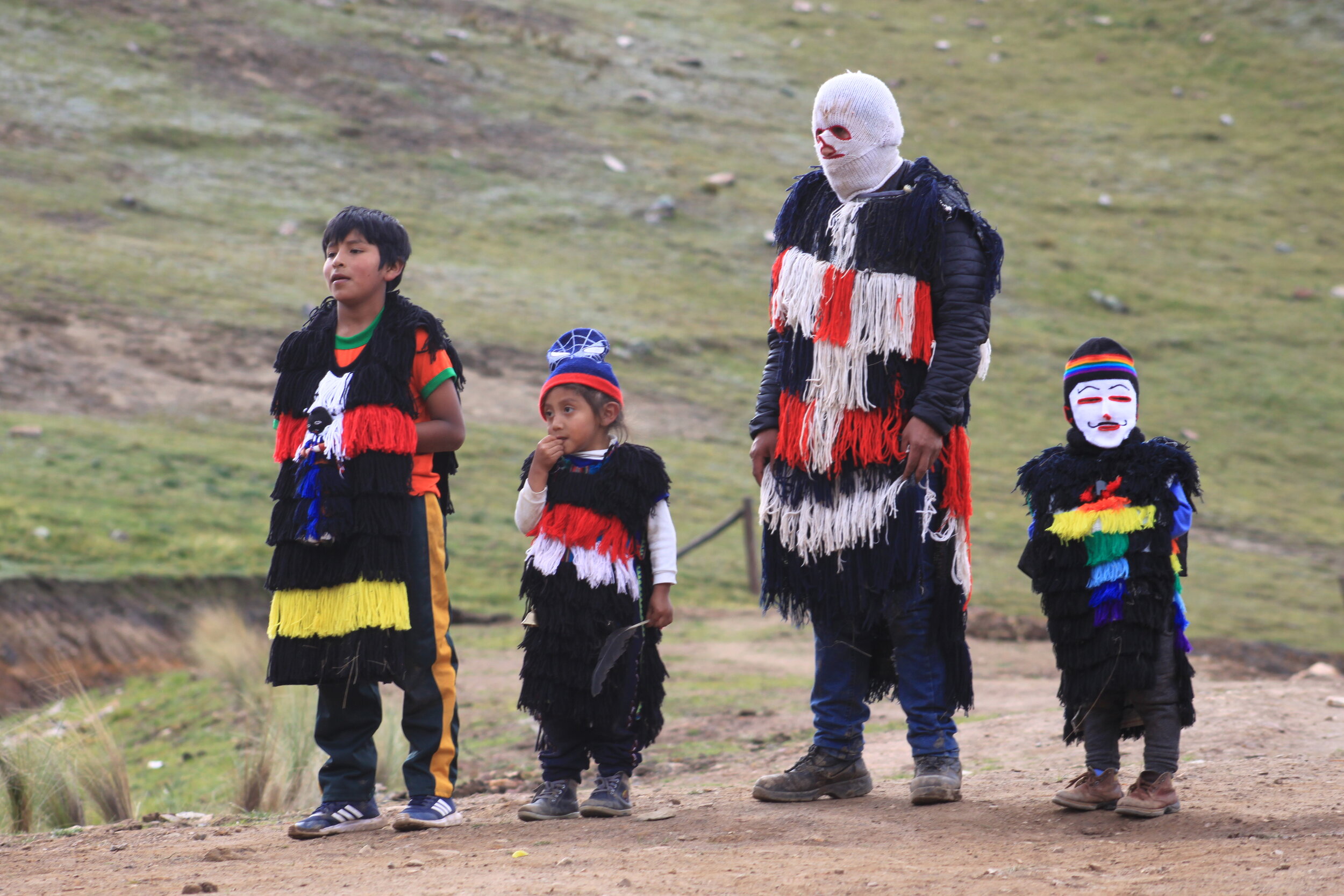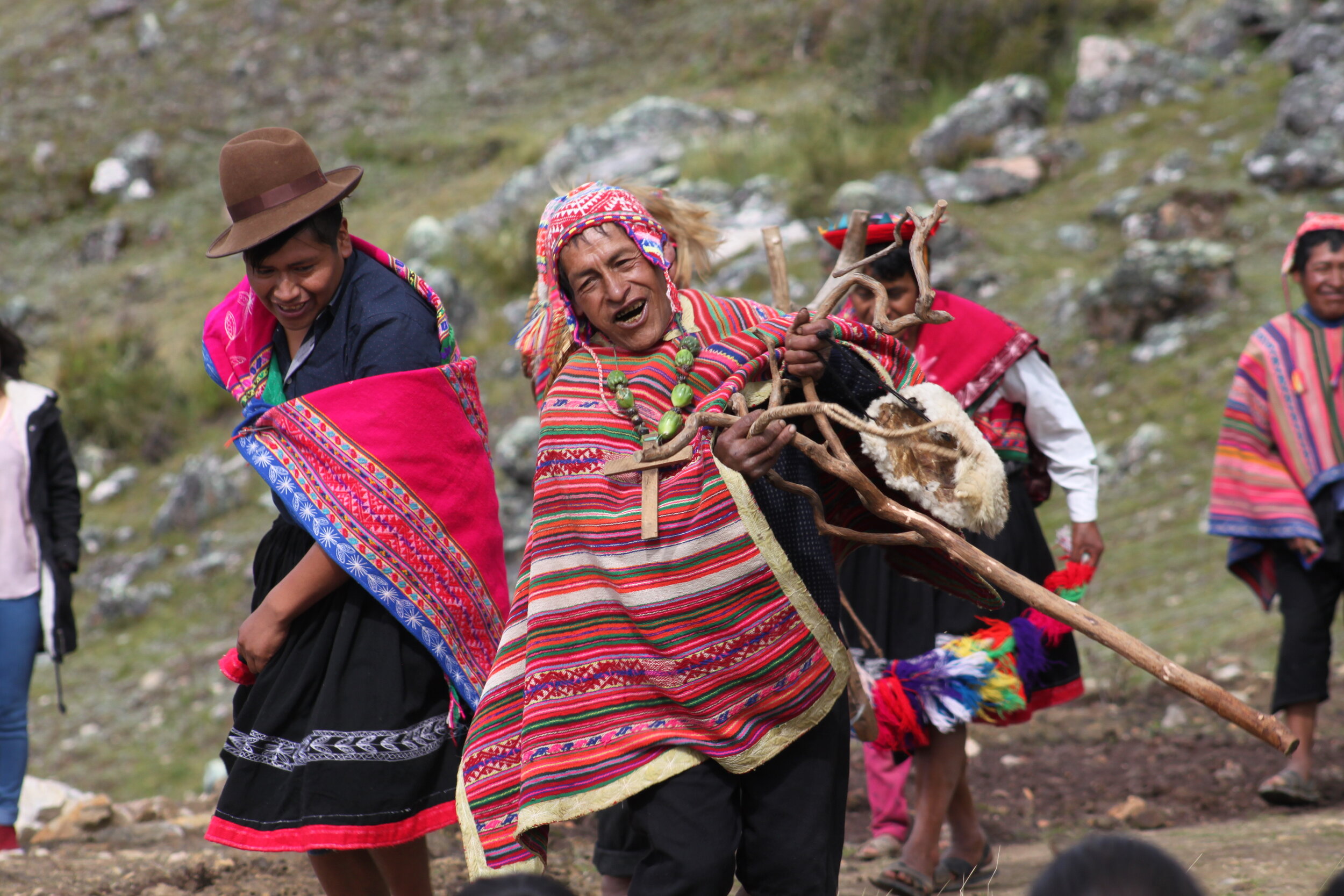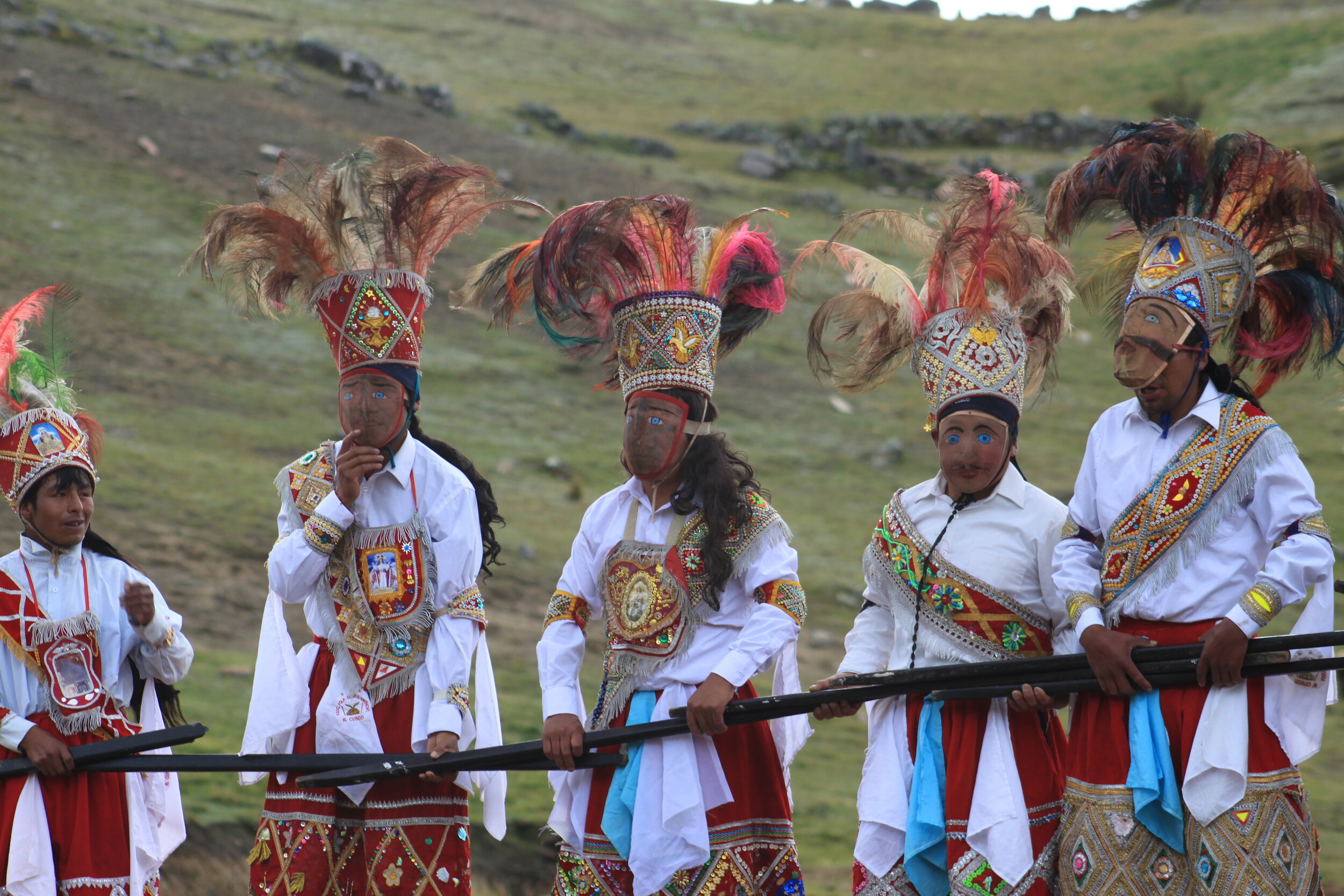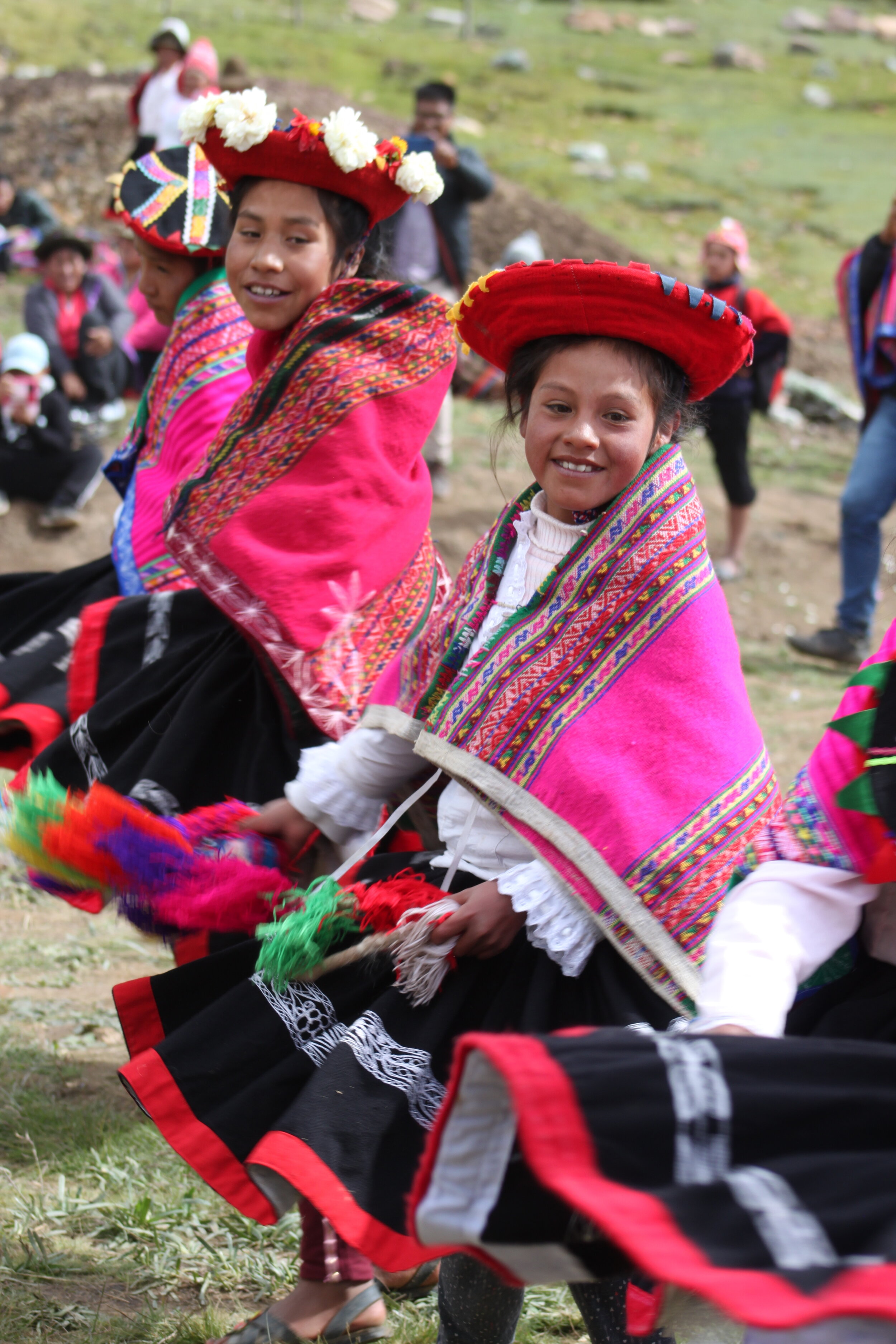Phase I of the water project is now nearly complete thanks to the hard work of Ccotataki community leaders and members, as well as the donations of time, labor and financial resource by friends both near and far. On March 15th, the Ccotataki community inaugurated the two working reservoirs and the water delivery system with a ceremony and festive celebration in honor of Wachuy Unu “where water is born.”
“With appreciation for Arawaka and all the kind-hearted people who donated to make this work a reality, working together with the community members and children of Pisac and Cusco to create a path to social, economic and cultural development.”
The Ccotataki community now has access to water year-round through two reservoirs that bring water a distance of approximately one mile to nourish the community’s crops and livestock. Access to water will provide more stable food production and the possibility of prosperity for years to come.
The community is working to create a small pond that will provide for more storage, and an irrigation distribution system closer to the crop fields in need of water.
Phase I will be completed once the pond is built. At that point, volunteers and community leaders will assess the functionality of the phase I system and prepare to initiate phase II of the project.
Ccotataki Community members and friends celebrated the inauguration of the water project with ceremony, music, food, and traditional dance. The Ccotataki community extends deep gratitude to all those who have helped to create a more abundant future for their indigenous Andean community.
